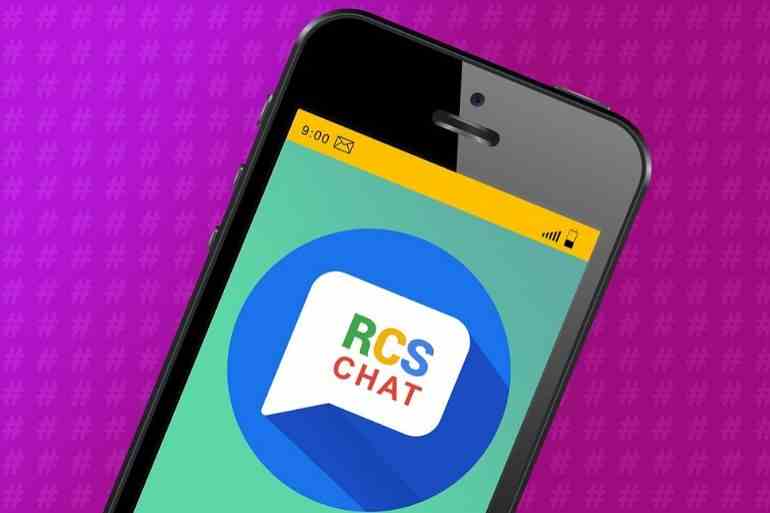Can Rich Communications Services (RCS) stand up and be counted?

AT&T, Sprint, T-Mobile and Verizon have formed the Cross-Carrier Messaging Initiative in a bid to make a strong case for the Rich Communications Services (RCS) standard yet again. Can RCS garner mainstream adoption?
After a decade of stop-starts, the GSMA’s Rich Communications Services (RCS) standard is trying to make another comeback. However, this time around the push for RCS is coming from leading US telcos such as AT&T, Sprint, T-Mobile and Verizon as part of their new Cross-Carrier Messaging Initiative.
RCS can be seen as a successor to the humble text message. It brings in capabilities such as messages with advanced features including high-resolution images, receipts, notifications and lots more. The big US carriers want to roll it out in 2020 on Android with the hope that it can bring the ‘next-generation of messaging’ to users. Interestingly, tech giants Google and Samsung have their own RCS implementations in place as well. But the big question is – do customers really want or need RCS?
Specialist messaging apps such as WhatsApp and Telegram have made life extremely easy for users with a range of ‘rich’ messaging features. In theory, the features available on RCS are already available to users on these popular messaging platforms. So, even if RCS brings in a seamless and interoperable messaging experience among carriers, it simply cannot beat the scale of WhatsApp which already caters for millions of users around the world.
As this article on Telecoms.com rightly suggests, perhaps the more interesting value proposition for RCS is in the B2B arena. With automated Application-to-Person (A2P) messaging already popular, RCS will open up a lot more options for operators. The big advantage with carriers supporting RCS is that businesses will not need to know whether someone has a particular app installed to send their message.
In fact, RCS offers a great opportunity for telcos to retain A2P messaging revenues. While tech upstarts have tried disrupting B2B messaging, no player really stands out in the broader business messaging sphere where SMS is still prevalent. Telcos can therefore drive RCS adoption in B2B messaging if they make a strong enough push for it, considering that competitors such as WhatsApp are still in the early phases of the B2B play.
Nevertheless, it will require telcos to overcome their traditional inertia and capitalise on the opportunity swiftly. The telecoms industry has already ceded space to nimble tech competitors in the VoIP, text messaging and content markets. If operators can build on the momentum generated by the Cross-Carrier Messaging Initiative, perhaps they can carve out an RCS niche for themselves after all?
RCS can be seen as a successor to the humble text message. It brings in capabilities such as messages with advanced features including high-resolution images, receipts, notifications and lots more. The big US carriers want to roll it out in 2020 on Android with the hope that it can bring the ‘next-generation of messaging’ to users. Interestingly, tech giants Google and Samsung have their own RCS implementations in place as well. But the big question is – do customers really want or need RCS?
Specialist messaging apps such as WhatsApp and Telegram have made life extremely easy for users with a range of ‘rich’ messaging features. In theory, the features available on RCS are already available to users on these popular messaging platforms. So, even if RCS brings in a seamless and interoperable messaging experience among carriers, it simply cannot beat the scale of WhatsApp which already caters for millions of users around the world.
As this article on Telecoms.com rightly suggests, perhaps the more interesting value proposition for RCS is in the B2B arena. With automated Application-to-Person (A2P) messaging already popular, RCS will open up a lot more options for operators. The big advantage with carriers supporting RCS is that businesses will not need to know whether someone has a particular app installed to send their message.
In fact, RCS offers a great opportunity for telcos to retain A2P messaging revenues. While tech upstarts have tried disrupting B2B messaging, no player really stands out in the broader business messaging sphere where SMS is still prevalent. Telcos can therefore drive RCS adoption in B2B messaging if they make a strong enough push for it, considering that competitors such as WhatsApp are still in the early phases of the B2B play.
Nevertheless, it will require telcos to overcome their traditional inertia and capitalise on the opportunity swiftly. The telecoms industry has already ceded space to nimble tech competitors in the VoIP, text messaging and content markets. If operators can build on the momentum generated by the Cross-Carrier Messaging Initiative, perhaps they can carve out an RCS niche for themselves after all?
